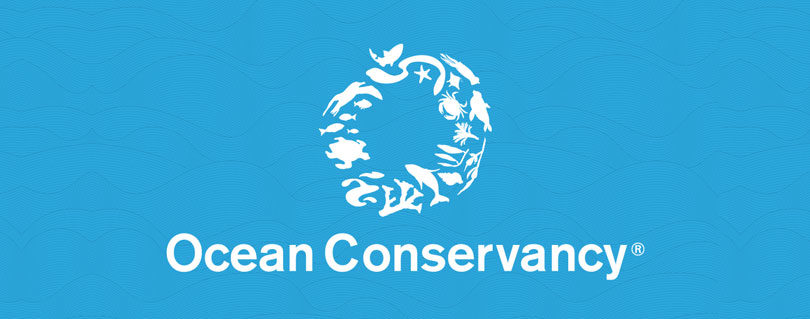At the Intersection of Creativity and Science
Published by Ocean Conservancy
Ocean Conservancy RAY Diversity Fellow Emily Okikawa recounts her experience listening to the words of Nai’a-Ulumaimalu Lewis and her thoughts on the enmeshing of conservation and Design Thinking.
Nai’a Lewis is all grace and poise and power when she takes the stage. As she begins to chant, the chatter in the conference hall quiets to a softened hush.
“Ke kau aloha wale mai la ka ua, e
Ke mauna o ka hāliu kua
I kū au aloha me ka mahalo
aloha, aloha e”
The last line echoes around the room, and she steps back behind the podium. It is only then the entire room finally exhales. The words of her oli mahalo settle into the quiet.
“What is your why?”
The question is meant to center us after a full day of what Jeremy Jackson would call “doom and gloom” at the Student Conference on Conservation Science. I have been absorbed in learning about dwindling endangered animal populations, illegal wildlife trade, habitat destruction and climate change. There’s always something that requires our immediate attention when faced with such daunting challenges.
Sometimes, in the blinding fervor of activism—an experiment to run, legislation to track, protests to attend—we lose sight of our original passion, that moment of awe that captured us, that pivotal encounter with nature burned into our memory that made us into the passionate advocate that we are today.
Nai’a’s words take me to back to my childhood days spent in grass-stained cargo pants that zipped at the knees and muddy dresses with home-sewn pockets for collecting rocks and bugs and leaves in interesting shapes. I remember spending hours crouched in the sand, staring transfixed at bustling tidepool metropolises scattered on the shore’s edge, refusing to leave even after the cold water left my teeth chattering and fingers wrinkled.
My why is that childhood thirst for knowledge, that affinity for beautiful and curious things. It is that innate understanding that I am not separate from my environment. I am just as interconnected as the smallest hermit crab or the microscopic diatom. Nai’a’s words prompted me to stop and reflect. In a bustling New York conference room, it was a reminder of what being an environmentalist truly means to me.
“What you do is proof of what you believe.”
As the creative director of 84 and Sunny and coordinator of Big Ocean, Nai’a combines her passion for community, culture and creativity. She focuses on building the creative capacity in a workforce by combining Design Thinking and art to better conceptualize ideas often seen as “pure science.”


“Design Thinking is rooted in empathy—it’s looking at feelings, emotions and backgrounds. It is a human-centered approach,” she notes. “You don’t start off with policy and management. You start off with people and community and you work towards social change. Numbers are helpful to impart the importance of large scale but at the end of the day, it comes back down to people.”
Her work at Big Ocean, helping professional managers of large-scale Marine Protected Areas (MPAs) create efficient management plans, provides an important glimpse into how creativity and art can be brought to the conservation world.
“All of these are ‘paper parks’ unless we come together to form a management plan or agreement of how we’re doing. So how is Big Ocean looking to merge Design Thinking with people? We’re looking to create resources for managers working at these sites—the field is still so nascent and only a few sites have active management plans.”
Science often operates under the assumption that emotion doesn’t have a place in research. It’s a radical departure to consider that the two must work in tandem, but we are rarely ever moved by numbers alone. It is not the bar chart showing the diminished populations levels that spurs us to action, it is the interpretation and presentation of that data as a story of survival and resilience that really makes sense to us.
“What is your imagined future?”
I’m still ruminating on the question Nai’a posed to us.


If there is anything I have come to understand it is that there will always be divides between us—whether it is science vs. creative approaches, race, gender or other perplexities of life. But we have the opportunity to overcome these chasms by reconnecting to our shared purpose–the why. It allows you to see things as a bigger picture and recognize we still share a lot more in common.
The first step to my imagined future is embracing creativity, rediscovering wonder and rekindling my passion for nature. And along that path, I hope to face those chasms of culture and understanding with a commitment to building bridges.
Follow Nai’a:
On Instagram: @andstillthewatersrise, or @naia_lewis
On Facebook: @stillthewatersrise
On Twitter: @naia_lewis
Listen to her podcast: And Still the Waters Rise, on SoundCloud and iTunes
Visit her website: And Still the Waters Rise
The post At the Intersection of Creativity and Science appeared first on Ocean Conservancy.
Read the full article at: https://oceanconservancy.org/blog/2017/11/02/intersection-creativity-science/



